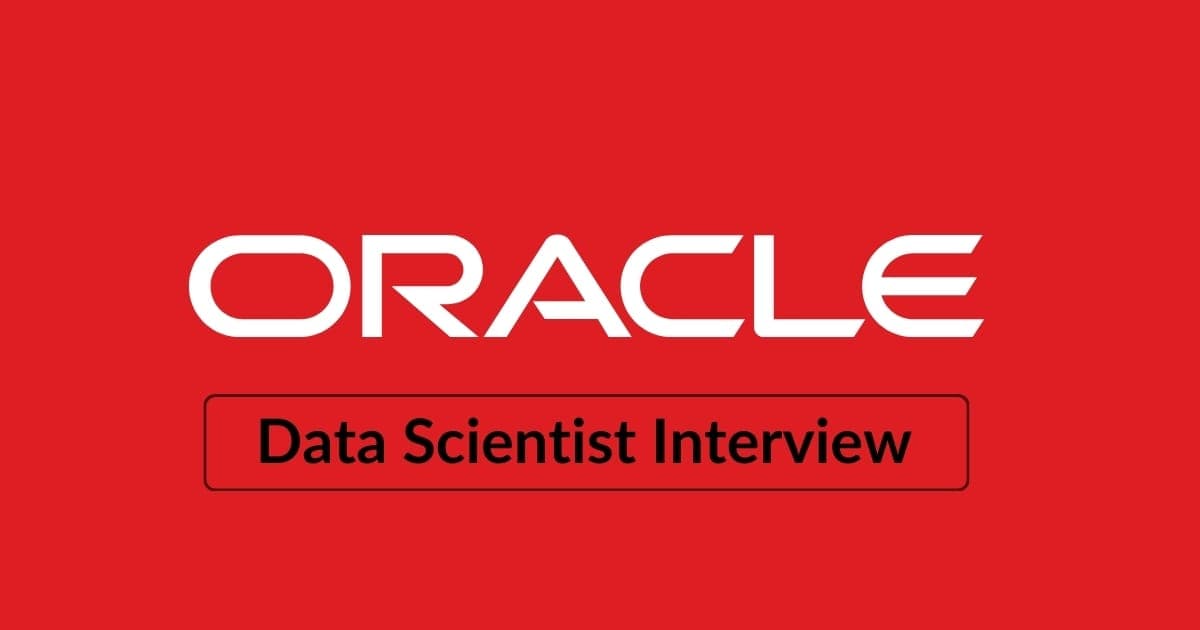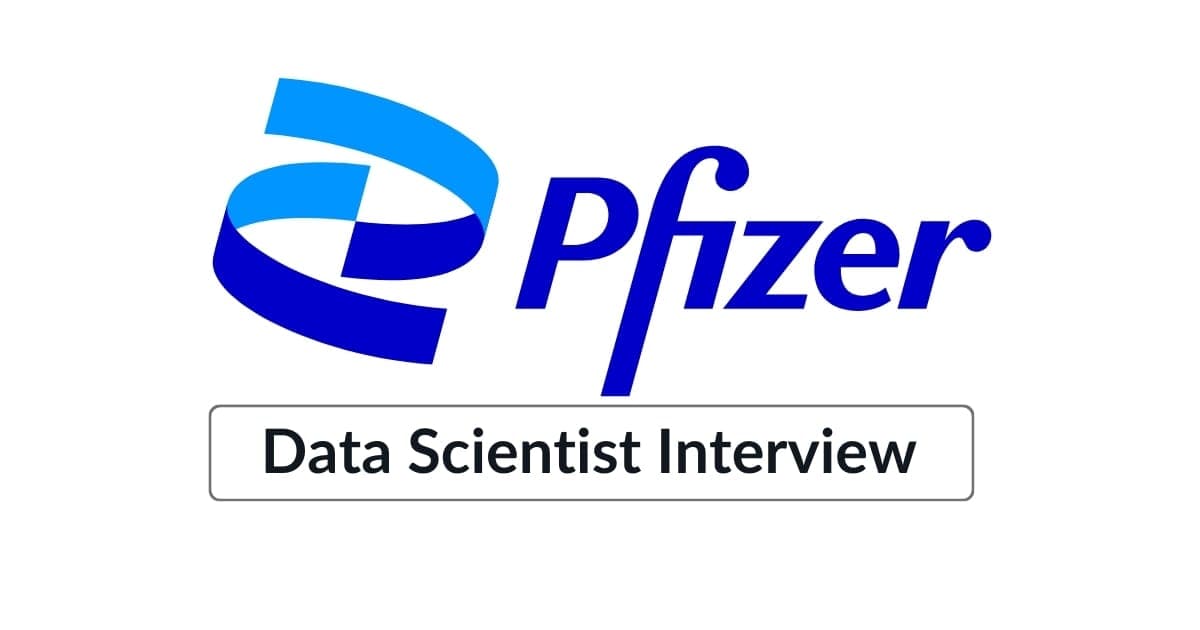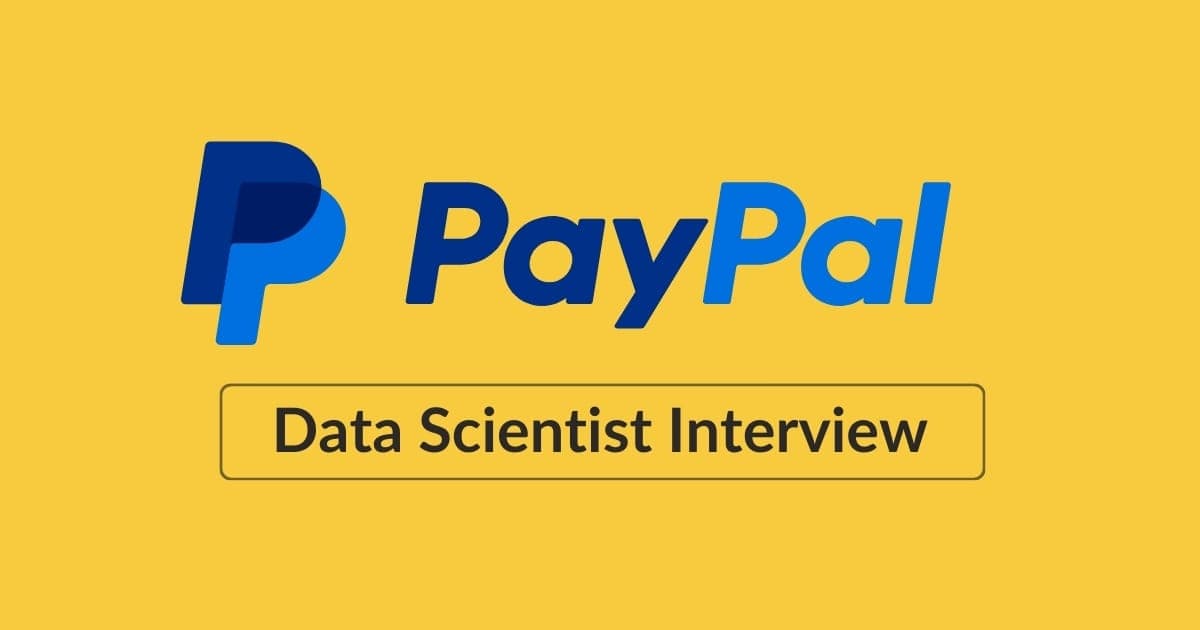Are you preparing for a Data Scientist interview at IBM? This comprehensive guide will provide you with insights into IBM’s interview process, the essential skills required, and strategies to help you excel.
As a leading player in the fields of data, machine learning, and AI, IBM seeks candidates who not only possess strong technical expertise but also demonstrate a keen understanding of business applications and innovative problem-solving abilities.
In this blog, we will explore the interview structure, highlight the types of questions you can expect, and offer tips to help you navigate each stage with confidence and poise.
Let’s dive in 👇
1. IBM Data Scientist Job
1.1 Role Overview
At IBM, Data Scientists play a pivotal role in transforming client data into actionable business value through advanced analytics and AI-driven solutions. This position requires a combination of deep technical skills, business acumen, and a passion for innovation to solve complex business challenges. As a Data Scientist at IBM, you will collaborate with cross-functional teams to develop and deploy AI models, optimize machine learning algorithms, and drive the integration of AI technologies into business processes.
Key Responsibilities:
- Lead the development and deployment of AI models in production environments.
- Direct the implementation and optimization of machine learning algorithms, neural networks, and statistical modeling techniques.
- Oversee the development and deployment of large language models (LLMs) in production environments.
- Collaborate closely with cross-functional teams to integrate MLOps pipelines with CI/CD tools.
- Stay abreast of the latest advancements in AI/ML technologies and contribute to the development and improvement of AI frameworks and libraries.
- Communicate technical concepts to non-technical stakeholders.
- Uphold industry best practices and standards in AI engineering.
Skills and Qualifications:
- 12+ years of extensive experience in Data Science and Generative AI.
- Deep background in machine learning, deep learning, and NLP.
- Hands-on expertise with transformer-based and diffuser-based models.
- Proficiency in traditional AI methodologies and frameworks.
- Familiarity with model serving platforms like TGIS and vLLM.
- Exceptional coding proficiency in Python, C++, and Java.
- Experience with ML libraries such as TensorFlow and PyTorch.
- Skilled in data integration, cleansing, and shaping.
- Proficient in developing data pipeline architectures.
- Experience with open-source AI frameworks.
1.2 Compensation and Benefits
IBM offers a competitive compensation package for Data Scientists, reflecting its commitment to attracting and retaining top talent in the data and AI fields. The compensation structure includes a base salary, performance bonuses, and stock options, along with various benefits that support work-life balance and professional development.
Example Compensation Breakdown by Level:
| Level Name | Total Compensation | Base Salary | Stock (/yr) | Bonus |
|---|---|---|---|---|
| Band 6 (Entry-Level Data Scientist) | $130K | $128K | $0 | $1.2K |
| Band 7 (Data Scientist) | $153K | $151K | $0 | $2.4K |
| Band 8 (Senior Data Scientist) | $213K | $202K | $6.6K | $5.1K |
| Band 9 (Lead Data Scientist) | $241K | $225K | $11K | $5.5K |
| Band 10 (Principal Data Scientist) | $300K+ | Varies | Varies | Varies |
Additional Benefits:
- Participation in IBM’s stock programs, including restricted stock units (RSUs).
- Comprehensive health and dental insurance.
- Retirement savings plans with company matching.
- Flexible work arrangements and remote work options.
- Professional development opportunities, including training and certifications.
- Employee discounts on IBM products and services.
Tips for Negotiation:
- Research compensation benchmarks for data scientist roles in your area to understand the market range.
- Consider the total compensation package, which includes stock options, bonuses, and benefits alongside the base salary.
- Highlight your unique skills and experiences during negotiations to maximize your offer.
IBM’s compensation structure is designed to reward innovation, collaboration, and excellence in the field of data science. For more details, visit IBM’s careers page.
2. IBM Interview Process and Timeline
Average Timeline: 4-6 weeks
2.1 Resume Screen (1-2 Weeks)
The first stage of IBM’s Data Scientist interview process is a resume review. Recruiters assess your background to ensure it aligns with the job requirements. Given the competitive nature of this step, presenting a strong, tailored resume is crucial.
What IBM Looks For:
- Proficiency in Python, SQL, and data science concepts.
- Experience with machine learning, statistical methods, and data analysis.
- Projects that demonstrate innovation, problem-solving, and collaboration.
- Understanding of IBM’s hybrid cloud and AI initiatives.
Tips for Success:
- Highlight experience with data visualization, A/B testing, and analytics.
- Emphasize projects involving machine learning models and statistical analysis.
- Use keywords like "data-driven insights," "machine learning," and "Python."
- Tailor your resume to showcase alignment with IBM’s mission of innovation and technological advancement.
Consider a resume review by an expert recruiter who works at FAANG to enhance your application.
2.2 Recruiter Phone Screen (20-30 Minutes)
In this initial call, the recruiter reviews your background, skills, and motivation for applying to IBM. They will provide an overview of the interview process and discuss your fit for the Data Scientist role.
Example Questions:
- Why would you like to work as a data scientist at IBM?
- What is your approach to resolving conflict with co-workers?
- What makes you passionate about data science?
Prepare a concise summary of your experience, focusing on key accomplishments and alignment with IBM’s goals.
2.3 Technical Screen (45-60 Minutes)
This round evaluates your technical skills and problem-solving abilities. It typically involves coding assessments, data analysis questions, and case-based discussions.
Focus Areas:
- Programming Skills: Solve coding challenges using Python and SQL.
- Statistical Analysis: Explain concepts like probability, hypothesis testing, and data science methodologies.
- Machine Learning: Discuss model evaluation metrics and feature engineering.
- Behavioral Questions: Address scenarios involving teamwork, conflict resolution, and exceeding expectations.
Preparation Tips:
Practice coding challenges and data analysis questions to enhance your problem-solving skills. Consider technical interview coaching by an expert coach who works at FAANG for personalized guidance.
2.4 Onsite Interviews (3-5 Hours)
The onsite interview typically consists of multiple rounds with data scientists, managers, and cross-functional partners. Each round is designed to assess specific competencies.
Key Components:
- Coding and Technical Challenges: Solve live exercises that test your ability to manipulate and analyze data effectively.
- Real-World Business Problems: Address complex scenarios involving data science applications and machine learning models.
- Behavioral Interviews: Discuss past projects, collaboration, and adaptability to demonstrate cultural alignment with IBM.
Preparation Tips:
- Review core data science topics, including statistical testing, machine learning algorithms, and data analysis techniques.
- Research IBM’s products and services, especially their focus on hybrid cloud and AI, and think about how data science could enhance them.
- Practice structured and clear communication of your solutions, emphasizing actionable insights.
For Personalized Guidance:
Consider mock interviews or coaching sessions to simulate the experience and receive tailored feedback. This can help you fine-tune your responses and build confidence.
IBM Data Scientist Interview Questions
Probability & Statistics Questions
Probability and statistics questions assess your understanding of fundamental concepts and your ability to apply them to real-world data problems.
Example Questions:
- How do you detect outliers in a dataset?
- What is the difference between precision and specificity?
- Explain the concept of p-value in hypothesis testing.
- How would you handle missing data in a dataset?
- What is the purpose of cross-validation?
- Describe the Central Limit Theorem and its significance in statistics.
- How do you interpret a confidence interval?
For a deeper understanding of statistics, check out the Applied Statistics Course.
Machine Learning Questions
Machine learning questions evaluate your knowledge of algorithms, model building, and problem-solving techniques applicable to IBM’s data-driven projects.
Example Questions:
- Explain the difference between supervised and unsupervised learning.
- Can you describe a project where you used machine learning?
- How would you handle class imbalance in a dataset?
- What is the bias-variance tradeoff?
- How do you evaluate the performance of a machine learning model?
- What are some common techniques for feature selection?
- Describe how you would implement a recommendation system.
Enhance your machine learning skills with the Machine Learning Course.
Coding Questions
Coding questions test your programming skills and ability to solve problems using code, often in languages like Python or R.
Example Questions:
- Write a function to reverse a string in Python.
- How would you implement a binary search algorithm?
- Write a Python script to find the most frequent element in a list.
- How do you handle exceptions in Python?
- Explain the concept of decorators in Python.
- Write a function to merge two sorted arrays.
- How would you optimize a slow-running Python script?
SQL Questions
SQL questions assess your ability to manipulate and analyze data using complex queries. Below are example tables IBM might use during the SQL round of the interview:
Employees Table:
| EmployeeID | EmployeeName | Department | JoinDate | Salary |
|---|---|---|---|---|
| 1 | John Doe | Data Science | 2022-01-15 | 95000 |
| 2 | Jane Smith | Machine Learning | 2021-06-10 | 105000 |
| 3 | Emily Davis | Data Engineering | 2023-03-01 | 90000 |
Projects Table:
| ProjectID | ProjectName | Department | StartDate | EndDate |
|---|---|---|---|---|
| 101 | AI Development | Machine Learning | 2023-01-01 | 2023-12-31 |
| 102 | Data Migration | Data Engineering | 2022-05-15 | 2023-05-15 |
| 103 | Customer Insights | Data Science | 2023-02-01 | 2023-08-01 |
Example Questions:
- Department Salary: Write a query to calculate the average salary by department.
- Project Duration: Write a query to find projects that lasted more than 6 months.
- Employee Projects: Write a query to list employees who have worked on projects in the Data Science department.
- Recent Hires: Write a query to find employees who joined in the last year.
- Salary Analysis: Write a query to determine the highest salary in the Machine Learning department.
Practice SQL queries on the DataInterview SQL pad.
Behavioral Questions
Behavioral questions assess your ability to work collaboratively, navigate challenges, and align with IBM’s mission and values.
Example Questions:
- Why would you like to work as a data scientist at IBM?
- What is your approach to resolving conflict with co-workers?
- What was a difficult challenge you overcame in your data science career?
- Tell me about a time when you exceeded expectations during a project.
- What makes you passionate about data science?
4. How to Prepare for the IBM Data Scientist Interview
4.1 Understand IBM’s Business Model and Products
To excel in open-ended case studies at IBM, it’s crucial to understand their diverse range of products and services. IBM operates in various sectors, including cloud computing, AI, and enterprise solutions, which are integral to their business model.
Key Areas to Understand:
- AI and Cloud Services: How IBM leverages AI and hybrid cloud solutions to drive business transformation.
- Data-Driven Solutions: The role of data science in enhancing IBM’s offerings, such as Watson AI and IBM Cloud.
- Industry Applications: How IBM applies its technologies across industries like healthcare, finance, and retail.
Understanding these aspects will provide context for tackling business case questions, such as proposing data-driven strategies for IBM’s AI initiatives or optimizing cloud services.
4.2 Master IBM’s Technical Requirements
Familiarity with IBM’s technical requirements is essential for excelling in technical interviews.
Key Focus Areas:
- Programming Skills: Proficiency in Python, C++, and Java for developing AI models and data pipelines.
- Machine Learning: Expertise in ML libraries like TensorFlow and PyTorch, and understanding of transformer-based models.
- Data Engineering: Skills in data integration, cleansing, and shaping to support AI model development.
These skills will help you navigate technical questions and demonstrate your ability to contribute to IBM’s data science projects.
Enhance your technical skills with the Data Scientist Interview Bootcamp.
4.3 Align with IBM’s Mission and Values
IBM’s mission is to lead in the creation, development, and manufacture of the industry’s most advanced information technologies. Aligning your preparation with this mission is key to showcasing your cultural fit during interviews.
Core Values:
- Innovation, collaboration, and excellence in AI and data science.
- Commitment to client success and technological advancement.
- Dedication to ethical AI and data-driven decision-making.
Showcase Your Fit:
Reflect on your experiences where you:
- Used data to drive innovation and solve complex business challenges.
- Collaborated effectively with cross-functional teams.
- Demonstrated a passion for AI and data science.
Highlight these examples in behavioral interviews to authentically demonstrate alignment with IBM’s mission and values.
4.4 Strengthen Your SQL and Coding Skills
IBM emphasizes technical rigor, making SQL and programming proficiency essential for success in their data science interviews.
Key Focus Areas:
- SQL Skills:
- Master complex queries, including joins and aggregations.
- Understand data manipulation and analysis techniques.
- Programming Skills:
- Python: Focus on data manipulation with libraries like pandas and NumPy.
- Machine Learning: Brush up on model building and evaluation techniques.
Preparation Tips:
- Practice SQL queries on real-world scenarios, such as data analysis and model evaluation.
- Use platforms like DataInterview.com coaching services for additional practice and feedback!
- Be ready to explain your logic and optimization strategies during coding challenges.
4.5 Practice with a Peer or Interview Coach
Simulating the interview experience can significantly improve your confidence and readiness. Mock interviews with a peer or coach can help you refine your answers and receive constructive feedback.
Tips:
- Practice structuring your answers for technical and business case questions.
- Review common behavioral questions to align your responses with IBM’s values.
- Engage with professional coaching services such as DataInterview.com for tailored, in-depth guidance and feedback.
Consider engaging with coaching platforms like DataInterview.com for tailored preparation. Mock interviews will help you build communication skills, anticipate potential challenges, and feel confident during IBM’s interview process.
5. FAQ
- What is the typical interview process for a Data Scientist at IBM?
The interview process generally includes a resume screening, a recruiter phone screen, a technical assessment, and onsite interviews. The entire process typically spans 4-6 weeks. - What skills are essential for a Data Scientist role at IBM?
Key skills include proficiency in Python, SQL, machine learning, deep learning, natural language processing (NLP), and experience with AI frameworks like TensorFlow and PyTorch. Strong analytical and problem-solving abilities are also crucial. - How can I prepare for the technical interviews?
Focus on practicing coding challenges in Python and SQL, review statistical concepts, and familiarize yourself with machine learning algorithms and their applications. Additionally, work on real-world data problems to enhance your practical skills. - What should I highlight in my resume for IBM?
Emphasize your experience with data analysis, machine learning projects, and any contributions to AI-driven solutions. Tailor your resume to showcase your technical skills, innovative projects, and alignment with IBM’s mission of technological advancement. - How does IBM evaluate candidates during interviews?
Candidates are assessed on their technical skills, problem-solving capabilities, and cultural fit. IBM places a strong emphasis on collaboration, innovation, and the ability to communicate complex concepts to non-technical stakeholders. - What is IBM’s mission?
IBM’s mission is to lead in the creation, development, and manufacture of the industry’s most advanced information technologies, focusing on innovation and client success. - What are the compensation levels for Data Scientists at IBM?
Compensation for Data Scientists at IBM ranges from approximately $130K for entry-level positions to over $300K for principal roles, including base salary, bonuses, and stock options. - What should I know about IBM’s business model for the interview?
Understanding IBM’s focus on hybrid cloud solutions, AI technologies, and their applications across various industries will be beneficial. Familiarity with IBM’s products, such as Watson AI, can help you answer business case questions effectively. - What are some key metrics IBM tracks for success?
Key metrics include project success rates, client satisfaction scores, AI model performance metrics, and the impact of data-driven solutions on business outcomes. - How can I align my responses with IBM’s mission and values?
Highlight experiences that demonstrate your commitment to innovation, collaboration, and ethical AI practices. Discuss how you have used data to drive business value and enhance client success in your previous roles.



